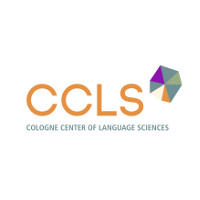Profile Romance Linguistics
What is the field of study about?
The Department of Romance Studies at the University of Cologne is one of the largest departments for Romance languages in the German-speaking world, with a wide range of courses in Spanish, French, Italian and Portuguese.
Apart from the possibility of expanding your oral and written language skills in a Romance language to level C2 (GeR) within the framework of the Language Practice module, we also offer seminars on historical linguistics, grammar theory and language variation. Our department also has the Sociolinguistic Lab, which enables you to plan and carry out empirical studies.
Students should deal with synchronous and diachronic aspects of Romance linguistics, understanding selected questions at a high theoretical and methodological level and discussing them competently. Within the framework of the profile, current theories of linguistic change will also be addressed under diachronic aspects. The analysis of linguistic structures, their inner-Roman comparison and comparative typological aspects will be in the foreground.
What does the Cologne Department of Romance Studies do?
The Department of Romance Studies at the University of Cologne focuses on the following research areas: history of language and culture, mode and modality, tempus and aspect, transitivity, linking and differential object marking, information structure, variation, language change and theory of language change, linguistic theory and history of science in Romania, corpus linguistics, quantitative sociolinguistics and comparative sociolinguistics.
The Department of Romance Linguistics is currently involved in four projects in the Sonderforschungsbereich Prominence in Language:
- Prominence marking and language contact in Spanish
- Interaction of nominal and verbal properties on differential object marking
- Prominence and information structure
- Tempus und aspect in discourse
In connection with these projects, seminars on grammar, information structure, language contact, and tempus and aspect are regularly offered. Thus you have a direct contact to current research projects.
You will also have the opportunity to participate in the weekly linguistic colloquium of Romance Studies, in which national and international speakers give lectures on current topics in Romance linguistics.
As an important department in a large Faculty of Arts and Humanities, the Department of Romance Studies is networked with many other disciplines, including the teaching and research centres, which regularly offer interdisciplinary lecture series and workshops.
What are the prerequisites?
If you want to specialise in Romance linguistics, you should have a basic knowledge of linguistic diversity, typology and an interest in grammatical structures. You should also have knowledge of a Romance language at level C1 (GeR). We also offer you the opportunity to optimise this level within the framework of the Language Practice module. If you are not sure whether your previous knowledge is sufficient, you can participate in the course "Linguistic Analysis 2". Here you will be able to close any gaps or find out with confidence that you are well prepared.
What is the field of study not about?
The aim of the profile of Romance Linguistics is not to be able to speak as many Romance languages as possible, but to know the structure of many Romance languages. This allows a systematic and productive comparison of different Romance languages and at the same time opens up the possibility of understanding detailed aspects of a single Romance language more deeply.
The programme is generally research-oriented and prepares students for an academic career. It does not focus on individual non-university professions.
Which modules is the field of study principally involved in?
AM 1-5, AM 6c, SM 1i, SM 2a, EM 1, EM 2.
Who can I contact?
Jun.-Prof. Dr. Marco García García
Contact: marco.garcia(at)uni-koeln.de
Homepage: http://romanistik.phil-fak.uni-koeln.de/20603.html
